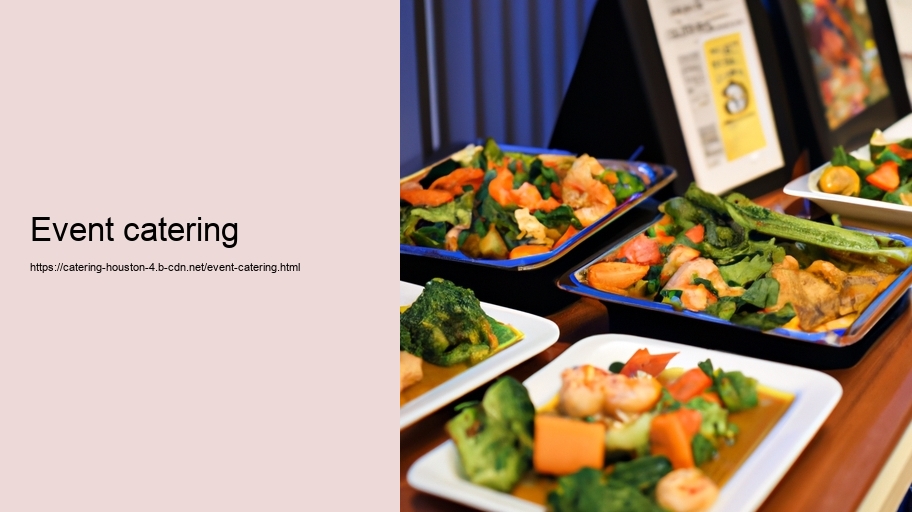Event catering is a multifaceted service industry that plays a crucial role in the success of events ranging from intimate gatherings to large-scale celebrations. It encompasses not just the provision of food and beverages, but also the orchestration of an experience that can leave a lasting impression on guests. In this essay, we'll delve into what event catering involves, its importance, and the elements that contribute to its success.
At its core, event catering is about satisfying one of our most basic needs—nourishment—in a way that complements and enhances the occasion being celebrated. Whether it's a wedding banquet, a corporate conference, or a birthday party, caterers are tasked with providing meals that are not only tasty and well-presented but also reflective of the event's theme and the host's personal tastes.
The process begins long before any food is cooked or any table is set. Professional caterers work closely with clients to understand their vision and preferences for their event. This includes discussing menu options, dietary restrictions, budget constraints, and logistical details such as venue layout and guest count. Once these parameters are established, caterers craft bespoke menus designed to wow guests while still adhering to practical considerations.
On the day of the event itself, caterers become conductors orchestrating various elements harmoniously. They must manage kitchen staff to ensure dishes are prepared correctly and served at optimal temperatures; coordinate with front-of-house staff for seamless service; oversee setup of dining areas including linens, silverware, and centerpieces; handle last-minute changes calmly; and troubleshoot any issues discreetly so as not to disrupt guests' enjoyment.
Cuisine creativity is another hallmark of exceptional event catering. Gone are the days when standard buffet fare was sufficient for most events. Today's clients often seek innovative culinary experiences that reflect global trends or local flavors. Caterers might incorporate interactive stations where chefs prepare dishes on demand or offer personalized tasting menus featuring avant-garde cooking techniques.
Sustainability has also become increasingly important in event catering as awareness grows about environmental impacts associated with food production and waste generation during events. Ethical caterers prioritize sourcing ingredients locally where possible to reduce carbon footprint; employ sustainable seafood guidelines; minimize use of disposables by opting for real crockery and cutlery; compost organic waste; recycle diligently; conserve water—and educate their clients on why these practices matter.
But beyond logistics, creativity, sustainability lies something even more fundamental: hospitality—the art making people feel welcome valued through generous reception graciousness towards them during shared mealtime experience.. Great caterering doesn't just feed bodies nourishes souls creating memories last far longer than taste lingering palate after dessert been cleared away.. It's warm smile server attentive pour sommelier thoughtful touch chef who remembers your name preference from last time you dined together.. These human interactions forge connections transform routine events meaningful celebrations life..
In conclusion,event catering represents convergence skill passion attention detail which culminates unforgettable experiences those enjoy pleasure attending special occasions.. From conceptualization execution there's no denying critical intricate beautiful tapestry woven each every successfully executed function thanks dedicated professionals behind scenes turning simple act eating into something truly extraordinary.. As we gather around tables across world let us appreciate fine craftsmanship goes into making these moments happen cherish joy companionship they bring into our lives..
